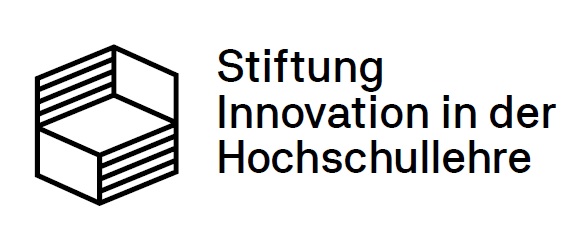Freiraum 2025_Preventing Praxis Shock for Students and Patients (PPPS)
The participatory teaching project Preventing Practice Shocks for Students and Patients (PPPS), which runs from 1 April 2025 to 31 March 2027, is dedicated to the challenges of the transition from inpatient to home care for patients and the practical requirements for future physiotherapists. Against the background of the need for innovation in health care and education in Germany, a bimodal seminar concept will be developed, implemented and evaluated in a 360° design of teaching-learning research. Students will learn about conceptually and digitally supported therapy and education that is individually tailored to the needs of the patient. Two research assistants specialising in physiotherapy and didactics and physiotherapy and nursing are responsible for the design of the seminars and the empirical work required for evaluation. These positions are closely linked in terms of content in order to exploit the synergies between didactic approaches and care-oriented requirements. The results of the project will be reflexively validated by an accompanying steering committee, published for research and teaching and synthesised in good practice guidelines.
Project background
Prospective physiotherapists face particular challenges in practice. Therapeutic interactions become more complex, especially when patients return from intensive medical care to their home environment with uncertainties. From the patient's perspective, the transition from hospital to home is also challenging. The current challenges in physiotherapy are directly related to the need for innovation in healthcare and the training of professionals to meet the growing demands of the healthcare sector.
Project objective
With the aim of training students to become reflective practitioners, the participatory teaching project PPPS is developing a bimodal seminar concept in a 360° design of teaching-learning research to optimise the supervision of physiotherapy students' practical assignments. In the practical assignments, students learn digitally supported therapy and education that is oriented towards the needs of patients. At the same time, the seminar concept is a pilot for the validated transition to the standard physiotherapy study programme at the Rosenheim University of Applied Sciences.
Project procedure
The PPPS teaching project develops, implements and evaluates a bimodal seminar concept in a 360° design of teaching-learning research. A seminar concept for digital and ADL-supported therapy in the home environment will be developed and implemented in the areas of physiotherapy and didactics as well as physiotherapy and nursing, which are interlinked in terms of content and time, based on the current state of research and in the sense of constructivist teaching-learning research. Following the Clinical Reasoning Process, a case-specific treatment plan is developed with the students and progress is monitored and reviewed. Iteration, sensitivity and the ability to make adjustments ensure patient orientation.
Innovation
The innovative character of the PPPS teaching project lies in the bimodal seminar concept and its participatory orientation, the anchoring in teaching-learning research and the gains in efficiency, quality and academic profiling of physiotherapy.
The teaching project has an impact on students and patients as well as on the THRO as a place of intervention, on the discipline of physical therapy in Germany and on the further development towards integrated health care. For the students, this means an improvement in studyability through the reduction of space and time consuming efforts, an increase in competence through supervised theory-practice transfer and reflection skills, ergo preparation for (digitally supported) practical application and the healthcare of the future. Patients benefit directly and prospectively from therapy with improved quality of care, education, increased sovereignty of future physiotherapists and corresponding gains in autonomy and self-efficacy as well as control, health and quality of life.
The good practice guidelines resulting from the teaching project for conceptually supported therapy (activities of daily living) in the home environment and for the education of patients consolidate physiotherapy as an academic discipline, not least through theory-practice transfer and vice versa. Orientation for the design of courses of study in applied (physiotherapeutic) sciences is created.
Patient orientation in health care formats paves the way for the correction of existing underuse, overuse and misuse in the home environment. Outpatient care and patient education play a central role in integrated health care, and the PPPS teaching project makes an important contribution to this scientifically based progress.
According to the principle of the Triple Jump examination, candidates are given information as well as time and opportunity for concept development, research and testing. The examination situation is one of reflection. The steering committee discusses the implications of the findings for the evaluation. Three cohorts of students go through the seminar. The evaluation concept allows for two optimisation loops involving students and patients. The findings from the teaching project are validated in a reflexive way with an accompanying steering committee, published for research and teaching and summarised in good practice guidelines.
Project lead
T +49 (0) 8031 / 805 - 2884 ulrike.fettke[at]th-rosenheim.de
Project staff
T +49 (0) 8031 / 805 - 2983 doreen.jacke[at]th-rosenheim.de
T +49 (0) 8031 / 805 - 2988 Melina.zaglacher[at]th-rosenheim.de
Project duration
2025-04-01 - 2027-03-31Project partners
Project funding



